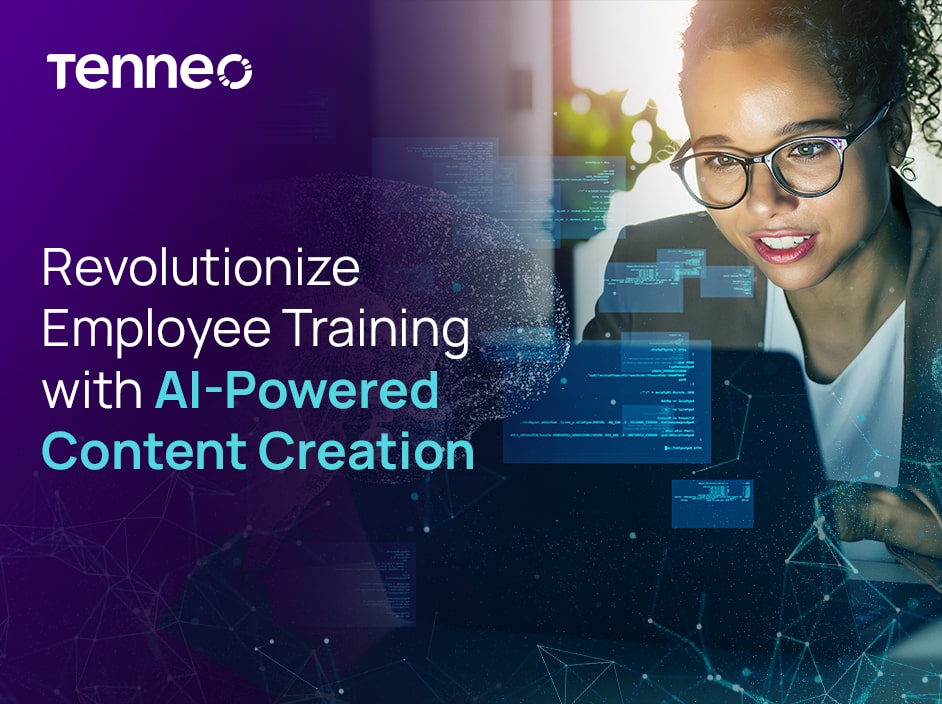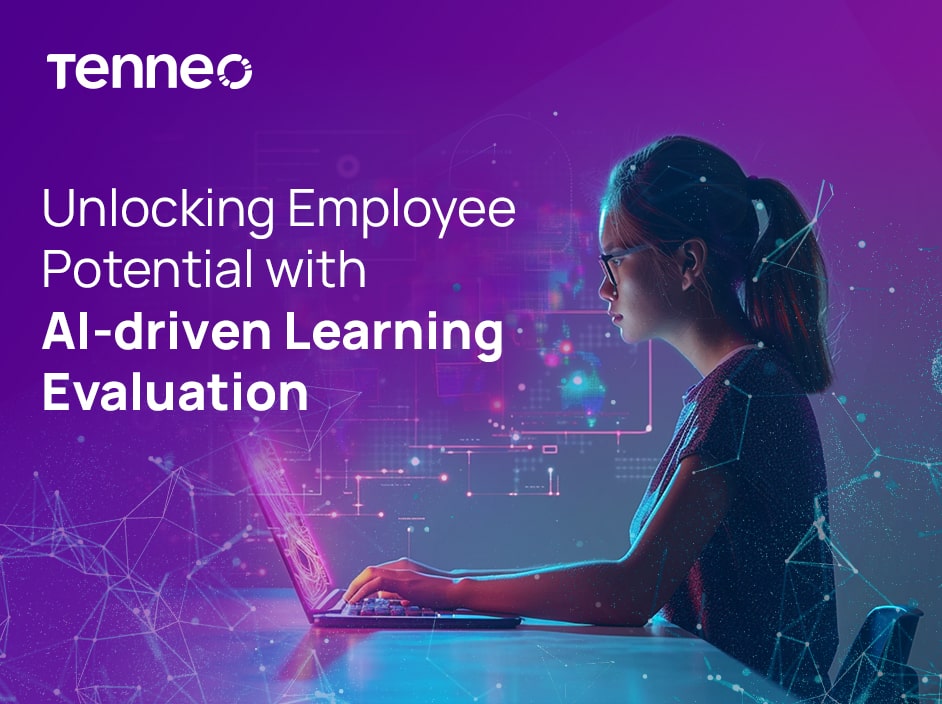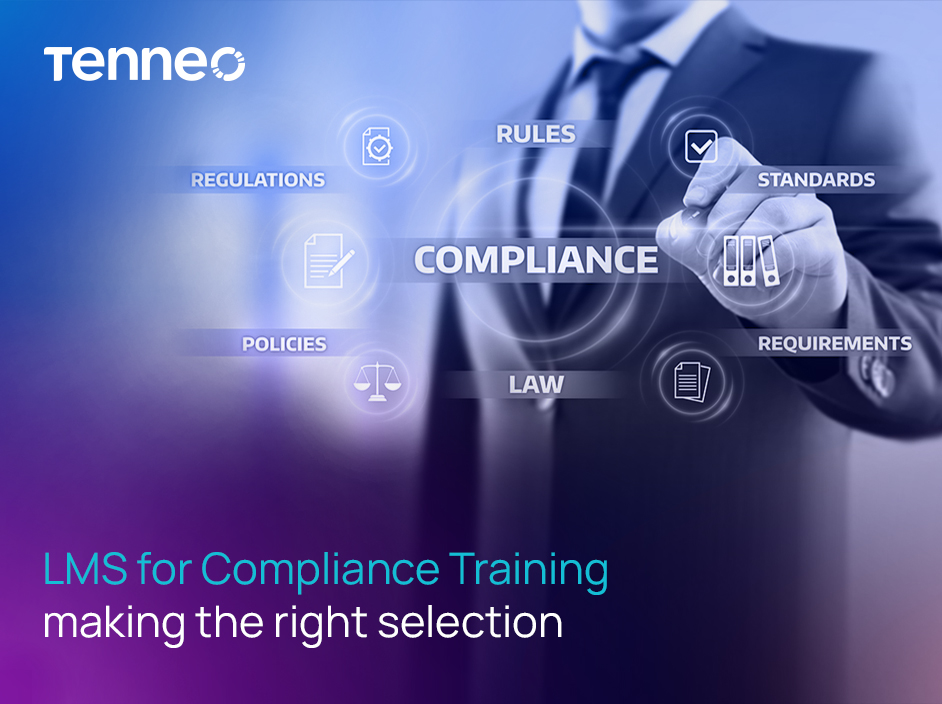
LMS for Compliance Training – making the right selection
April 13, 2023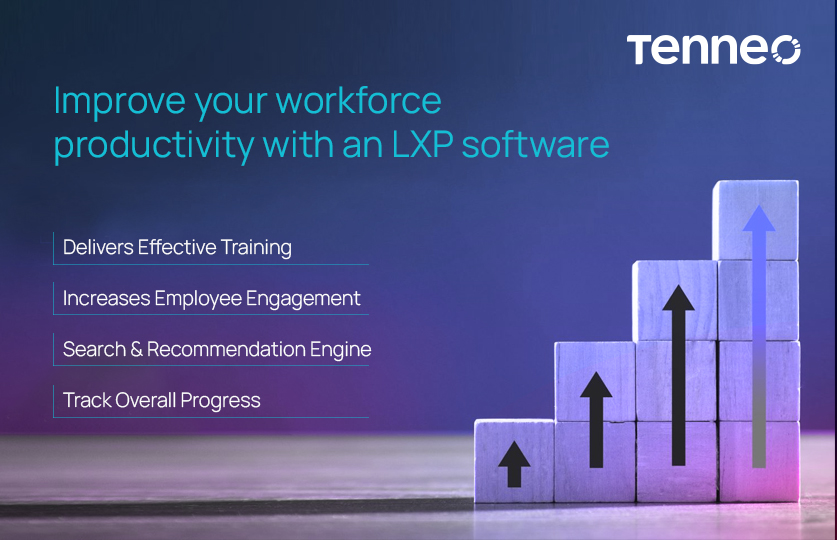
How does the LXP software improve your workforce productivity?
April 13, 2023
LMS for Compliance Training – making the right selection
April 13, 2023
How does the LXP software improve your workforce productivity?
April 13, 2023Blog - 22 Mar 2023 | 6 Min
Learning Management System Mobile App to Boost Productivity of New Hires
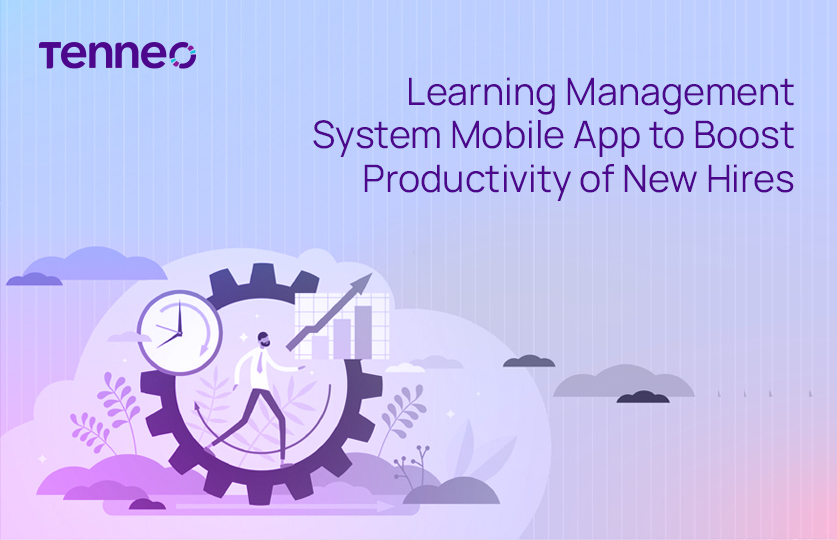
A successful training program in the corporate learning space starts with engaging the new hires right at the onboarding stage and continues till they achieve peak productivity in their job roles. While hiring the right talent is the starting step of the journey, workforces also expect the companies to provide support to learn the right skills for the job.
Herein, the assessment of the existing skills and the learning needs of the fresh workforces becomes a critical step to make them productive as soon as possible. As the time-to-productivity of an workforce reflects the Return-On-Investment (ROI) generated by the training program at large, it is a core challenge for the HR and L&D professionals.
Having the right platform goes a long way in shortening the time-to-productivity for new hires by simplifying the whole experience at both ends. In this article, we’ll see how a Learning Management System Mobile App can help us reduce the time-to-productivity.
Shortening Time to Productivity with a Learning Management System Mobile App
When a Learning Management System Mobile App is used to engage the workforces from the very beginning it automatically reduces some time that is usually wasted on paper-based/email-based onboarding process and training assignments. To begin with, the LMS serves as a centralized platform which gives ready access to all onboarding material to the workforce once they are registered as a user. The dependency on trainer or onboarding HR official is reduced helping the new hire start an independent journey in the organization from the very beginning.
An LMS offers a wide variety of features that helps organizations make their new hires a part of their contributing workforce in considerably lesser time. Here are four ways in which an LMS Mobile App cuts down Time-to-Productivity:
-
Personalized Learning Paths
A Learning Management System Mobile App helps you deliver personalized learning paths to new hire workforces by assessing their learning needs at pre-boarding engagement. It takes different skill levels, talents, and learning styles into account and creates a learning path for the learner that ensures faster time to productivity.
-
Immersive Experience
An LMS allows you to deliver an immersive learning experience to train your new workforces through interactive media. Trainees can be offered simulations for real-world scenarios, interactive lessons for deeper product understanding, and inputs from sales teams for real queries asked by customers.
-
Higher Accessibility
A mobile-first LMS increases the accessibility to your onboarding programs and enables on-demand learning. This means that your workforces can access your training programs at any time, on any device.
-
Enables Social Learning
Learning Management System Mobile App can also be used to enable social learning in an organization. This can be used to make the onboarding programs more retentive, engaging, and competitive which can marginally boost Time to Productivity.
To sum up, a Learning Management System Mobile App helps organizations engage the new hires reducing their Time-to-Productivity. It allows them to deliver more engaging, personalized, accessible, and immersive workforce training which enables an agile learning process for the new workforces.
At Tenneo (formerly G-Cube LMS), we have a dedicated customer success management team which not only helps with strategic intervention to increase productivity related issues through learning but also hand holds through the implementation and change management. Our learning consultants would love to hear your thoughts, queries, and suggestions.
Related services
Product Engineering
Other Blogs
Stay updated with Tenneo
A successful training program in the corporate learning space starts with engaging the new hires right at the onboarding stage and continues till they achieve peak productivity in their job roles. While hiring the right talent is the starting step of the journey, workforces also expect the companies to provide support to learn the right skills for the job.
Herein, the assessment of the existing skills and the learning needs of the fresh workforces becomes a critical step to make them productive as soon as possible. As the time-to-productivity of an workforce reflects the Return-On-Investment (ROI) generated by the training program at large, it is a core challenge for the HR and L&D professionals.
Having the right platform goes a long way in shortening the time-to-productivity for new hires by simplifying the whole experience at both ends. In this article, we’ll see how a Learning Management System Mobile App can help us reduce the time-to-productivity.
Shortening Time to Productivity with a Learning Management System Mobile App
When a Learning Management System Mobile App is used to engage the workforces from the very beginning it automatically reduces some time that is usually wasted on paper-based/email-based onboarding process and training assignments. To begin with, the LMS serves as a centralized platform which gives ready access to all onboarding material to the workforce once they are registered as a user. The dependency on trainer or onboarding HR official is reduced helping the new hire start an independent journey in the organization from the very beginning.
An LMS offers a wide variety of features that helps organizations make their new hires a part of their contributing workforce in considerably lesser time. Here are four ways in which an LMS Mobile App cuts down Time-to-Productivity:
- Personalized Learning Paths
A Learning Management System Mobile App helps you deliver personalized learning paths to new hire workforces by assessing their learning needs at pre-boarding engagement. It takes different skill levels, talents, and learning styles into account and creates a learning path for the learner that ensures faster time to productivity.
- Immersive Experience
An LMS allows you to deliver an immersive learning experience to train your new workforces through interactive media. Trainees can be offered simulations for real-world scenarios, interactive lessons for deeper product understanding, and inputs from sales teams for real queries asked by customers.
- Higher Accessibility
A mobile-first LMS increases the accessibility to your onboarding programs and enables on-demand learning. This means that your workforces can access your training programs at any time, on any device.
- Enables Social Learning
Learning Management System Mobile App can also be used to enable social learning in an organization. This can be used to make the onboarding programs more retentive, engaging, and competitive which can marginally boost Time to Productivity.
To sum up, a Learning Management System Mobile App helps organizations engage the new hires reducing their Time-to-Productivity. It allows them to deliver more engaging, personalized, accessible, and immersive workforce training which enables an agile learning process for the new workforces.
At Tenneo (formerly G-Cube LMS), we have a dedicated customer success management team which not only helps with strategic intervention to increase productivity related issues through learning but also hand holds through the implementation and change management. Our learning consultants would love to hear your thoughts, queries, and suggestions.


